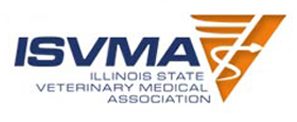Food Animal Safety
Food Safety and Animal Health & Welfare:
Today’s focus will be on Food Safety and Animal Health & Welfare. Discussion will not solely be based on food safety and health & welfare as it relates specifically to your pet, but on the ways the federal government provides service for the general population. There are many facets to this monitoring process. Various agencies have a specific focus, but collaboration is necessary to maintain the safety in our food from start to finish and protection against the spread of contagious and foreign animal diseases that might threaten the U.S. livestock industry as well as food supply. The following is information taken from the USDA FSIS website on the various agencies, there specific role in food safety and animal health & welfare and links to information on these sites.
-The FSIS is charged with protecting the public’s health by ensuring the safety of meat, poultry, and processed egg products.
– FSIS in Illinois
-Animal and Plant Health Inspection Service (APHIS)
Animal Health – APHIS works in a variety of ways to protect and improve the health, quality, and marketability of our nation’s animals (including various wildlife), animal products, and veterinary biologics. This subject area describes many of the diseases facing animals today, as well the steps APHIS is taking to prevent, control, and eliminate those conditions. This includes the National Veterinary Accreditation Program
Animal Care – USDA Animal Care is responsible for administering the Animal Welfare Act and the Horse Protection Act. The Animal Welfare Act establishes requirements concerning the transportation, sale, and handling of certain animals and includes restrictions on the importation of live dogs for purposes of resale, prohibitions on animal fighting ventures, and provisions intended to prevent the theft of personal pets. The Horse Protection Act seeks end to horse soring (a procedure in which horses are subjected to chemical and/or mechanical irritants in order to enhance their gait) by preventing sored horses from participating in exhibitions, shows, sales, or auctions. The Center for Animal Welfare collaborates with other animal welfare entities to play a central role in USDA’s efforts to build partnerships domestically and internationally, improve regulatory practices, and reach beyond USDA’s traditional regulatory role to develop outreach, training and educational resources. USDA Animal Care’s emergency response component provides national leadership on the safety and well-being of pets during disasters – with the understanding that supporting animal safety during emergencies is a significant factor in ensuring the well-being of pet owners.
– The FDA is charged with protecting consumers against impure, unsafe, and fraudulently labeled products. FDA, through its Center for Food Safety and Applied Nutrition (CFSAN), regulates foods other than the meat, poultry, and egg products regulated by FSIS. FDA is also responsible for the safety of drugs, medical devices, biologics, animal feed and drugs, cosmetics, and radiation emitting devices.
– CDC leads federal efforts to gather data on foodborne illnesses, investigate foodborne illnesses and outbreaks, and monitor the effectiveness of prevention and control efforts in reducing foodborne illnesses. CDC also plays a key role in building state and local health department epidemiology, laboratory, and environmental health capacity to support foodborne disease surveillance and outbreak response.
- S. Environmental Protection Agency (EPA)
EPA works for a cleaner, healthier environment. EPA’s mission includes protecting public health and the environment from risks posed by pesticides and promoting safer means of pest management. - S. Department of Homeland Security – https://www.dhs.gov/
FSIS works with agencies in the Department of Homeland Security to ensure that FSIS is able to respond quickly and effectively to an attack on the food supply, major disease outbreak, or other disaster affecting the national food infrastructure.
Foodsafety.gov is one site for multi-agency sourced information on food safety. Minimum cooking temperatures as well as current food recalls can be found through this source.
